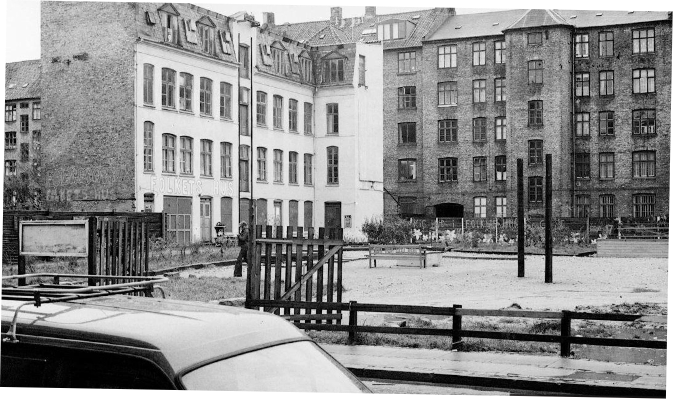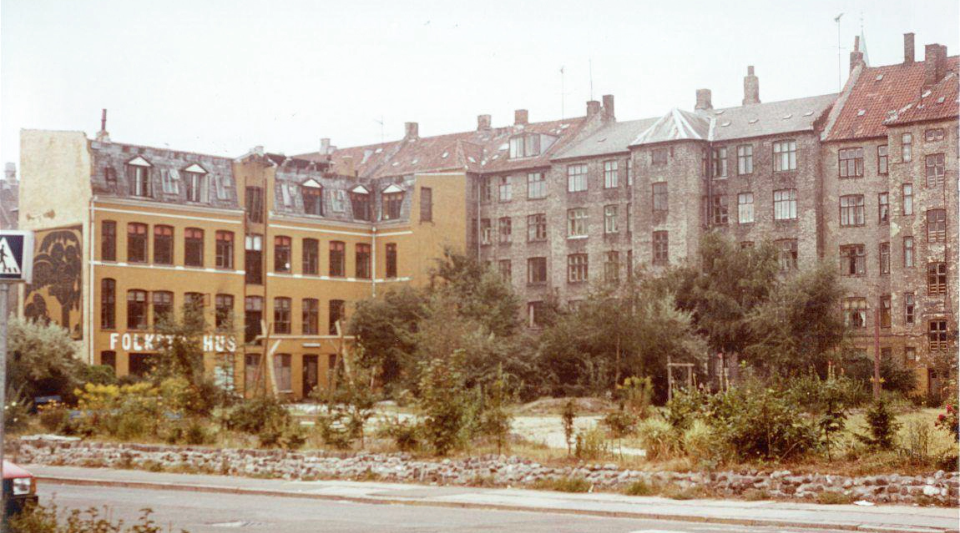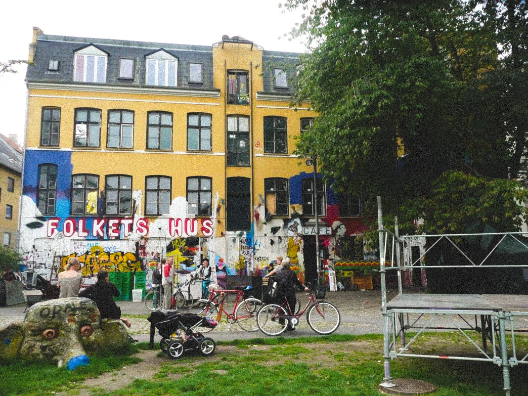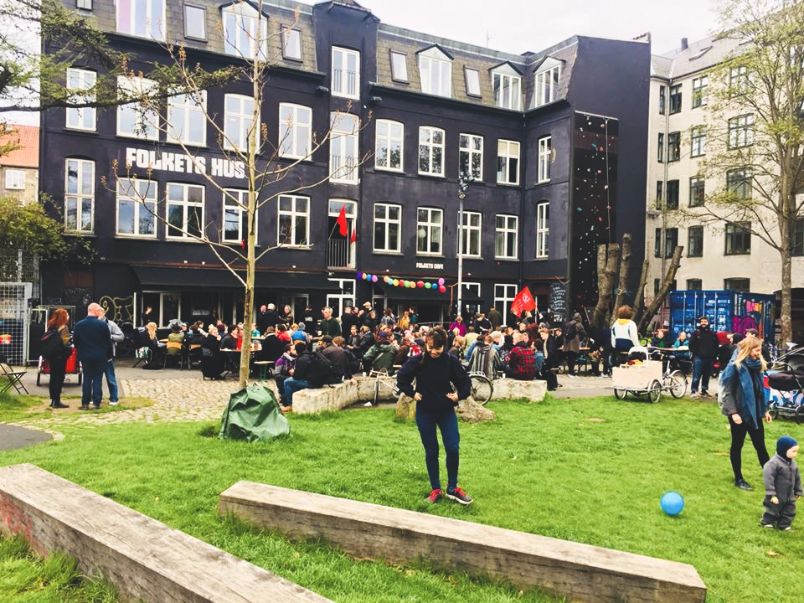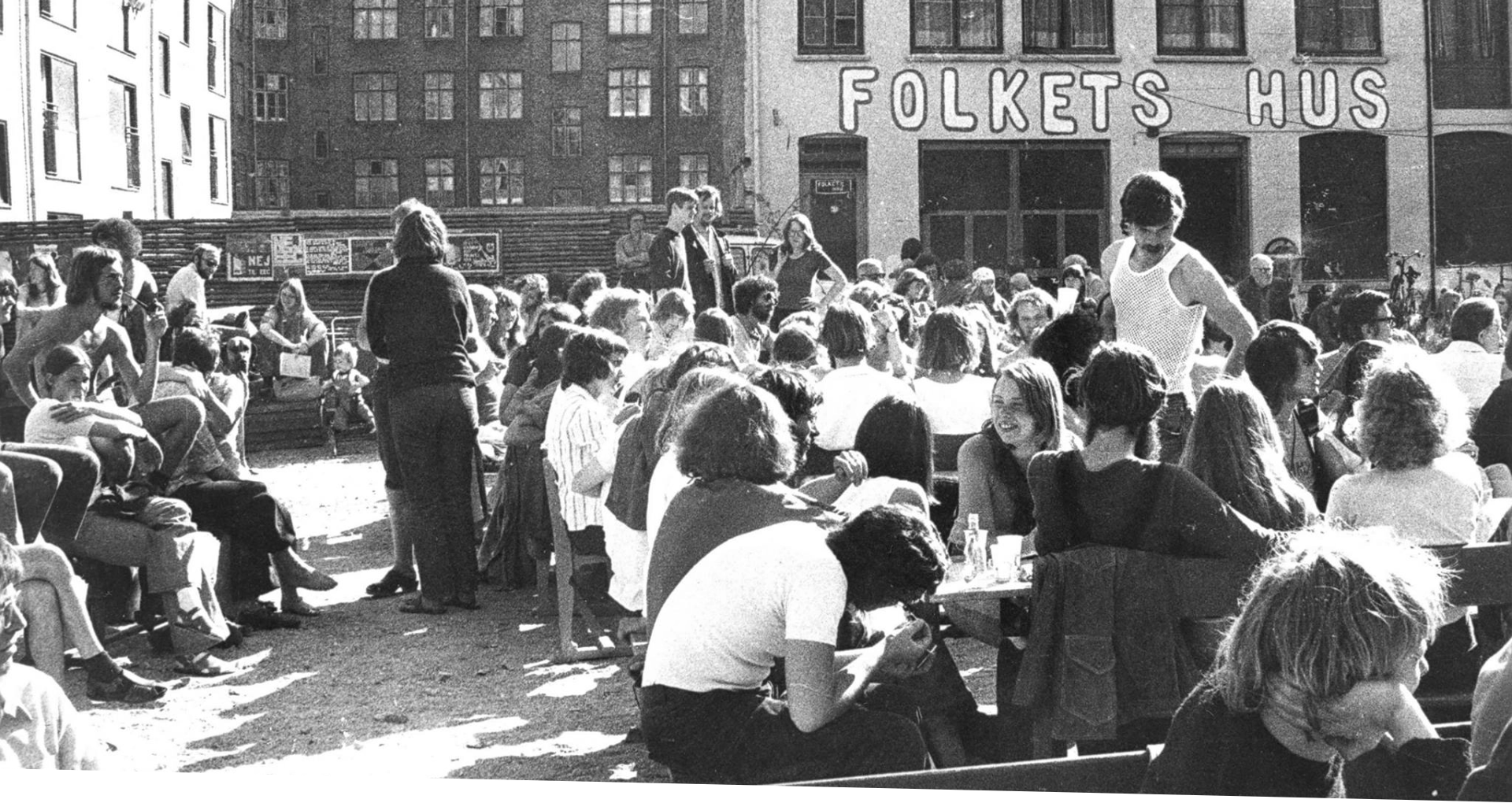
The history of Folkets Hus
70:s and 80:s
Folkets Hus is squatted
Folkets Hus was established the 12th of September 1971. The old factory building on Stengade 50 was empty when a group of young squatters took it as part of the so called September offensive, where among other things, also Christiania was squatted. The park outside the house, Folkets Park, was squatted already in the spring the same year, and the squatting of the house was originally an attempt to supplement and defend the park.
The black square
Nørrebro looked very different in the 70s from what it does today. The area around Folkets Hus in Inner Nørrebro was known as ‘The Black Square’. A neighborhood defined by dense housing, slum-like living conditions and few open places and common facilities for the inhabitants of the neighborhood
Folkets Hus becomes a community house
Folkets Hus became organized as a self-running community house and became a gathering point for Nørrebro’s inhabitants. The houses’ users formed groups around different activities such as folk music and theater. The folk music group Folkets Hus Spillefolk was established in that period and has throughout the years given the house music and dance. Through the years Folkets Hus has had a strong tradition for practicing interests and communities in an informal environment, defined by engagement, curiosity and respect for one another.
The Struggle against Urban Redevelopment
In the 70s and 80s there were many conflicts with Copenhagen municipality that wanted to renovate the neighborhood, and there were plans of remaking the area around Folkets Hus to a parking lot. At the same time there were fights between the municipality and Nørrebro’s inhabitants around the construction playground that was known as Byggeren that was next to Folkets Hus. The plot was evicted in 1980 after many years of struggle.
90:s
Folkets Hus is Legalized
In the 90s Folkets Hus received the status as a legalized autonomous culture house within Copenhagen Municipality and still works as such. The house is still user run according to grass root democratic principles and is kept in condition by volunteers.
Folkets Park
In 1996 the municipality made an attempt at starting construction of residential houses on Folkets Park. As a response, the Folkets Park-initiative was established, which instead built a playground on parts of the park and organized efforts to defend the park. This was done in many different forms, for instance the landlord who would own the new apartments withdrew in 1997 after other residents in their housing complexes threatened to rent strike unless the plans were dropped. There were attempts at starting the construction, but people came out to stand in the way of the bulldozers. Several unions announced that their members would strike if they were told to start the construction. Eventually the pressure became too large and in 2004 the park is finally recognized in the municipalities neighborhood plan. Folkets Park was renovated in 2008 through a cooperation between Copenhagen Municipality and the Folkets Park Initiative.
00:s until today
The House of the Social Movements
Folkets Hus is an important part of the modern history of Nørrebro. The house has played – and still plays – an important role in local citizen initiatives and social and political struggles in Nørrebro. Apart from the struggle around Byggeren, Folkets Hus has hosted many of the political struggles that have taken place in Nørrebro. For instance the struggle for Ungdomshuset, the large asylum political actions and for instance in relation to Nørrebro pride. Folkets Hus has always been a natural meeting point for activists from near and far, when there’s been larger actions and demonstrations in Copenhagen.
Renovation and Reorganizing
I 2008 the café was established. At first it was called “Café under Construction”, but eventually got the name Folkets Café. In 2012-2013 Folkets Hus went through a large renovation after many years heavy use of the old factory building. In combination with the renovation the house among other things got new windows, floors, fire doors, toilets and electricity installations. Besides that the house got painted and has gotten lots of new furniture. In 2013 Folkets Hus entered the foundation FONDEN FOR DE ÅBNE RUM. The purpose of the foundation is to increase safety, sustainability and social responsibility, and it supports user run projects.
Close-down
In the 10s there were attempts by the group “Loyal to Familia” to use the house for selling weed. This led to conflicts with the activists of the house, who tried different methods to protest the actions of the group. This conflict led to the house being closed down in periods.
Covid and Recent History
The covid pandemic caused a drop in the houses activity since many of the activities could no longer take place. To reactivate the house after the pandemic, the café was renovated in early 2023, and the activity has kept increasing since. The past period has also seen new initiatives such as the bike workshop emerging and old initiatives such as the Sunday brunch returning.
